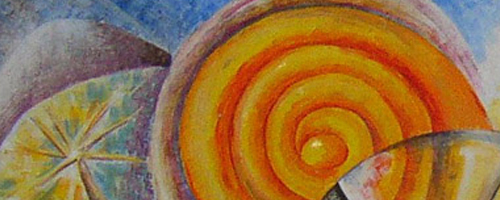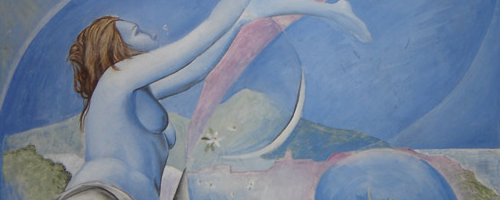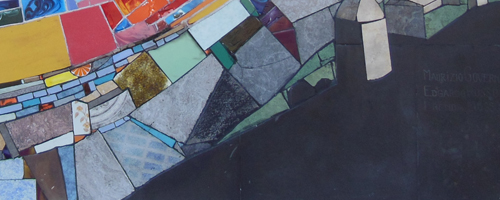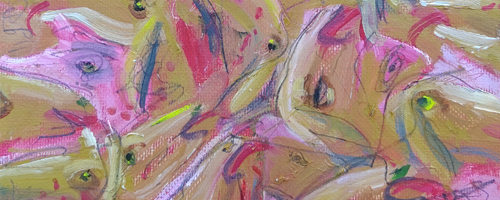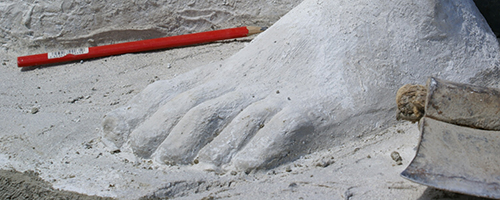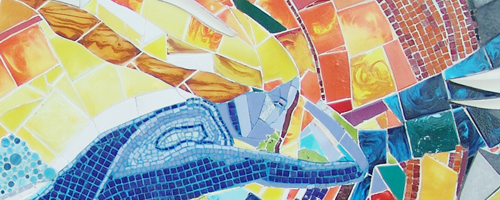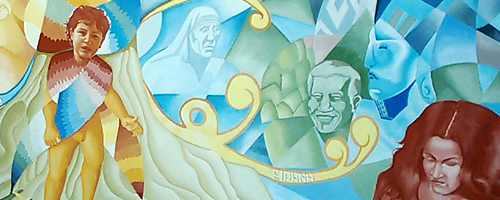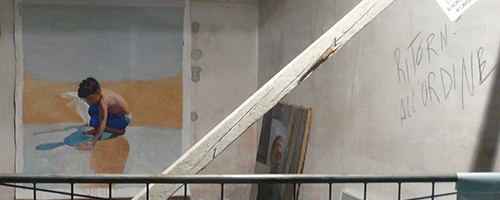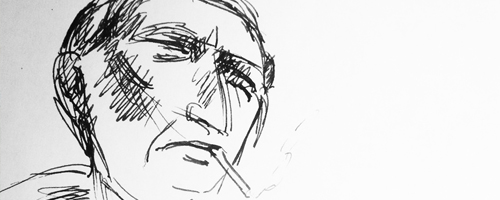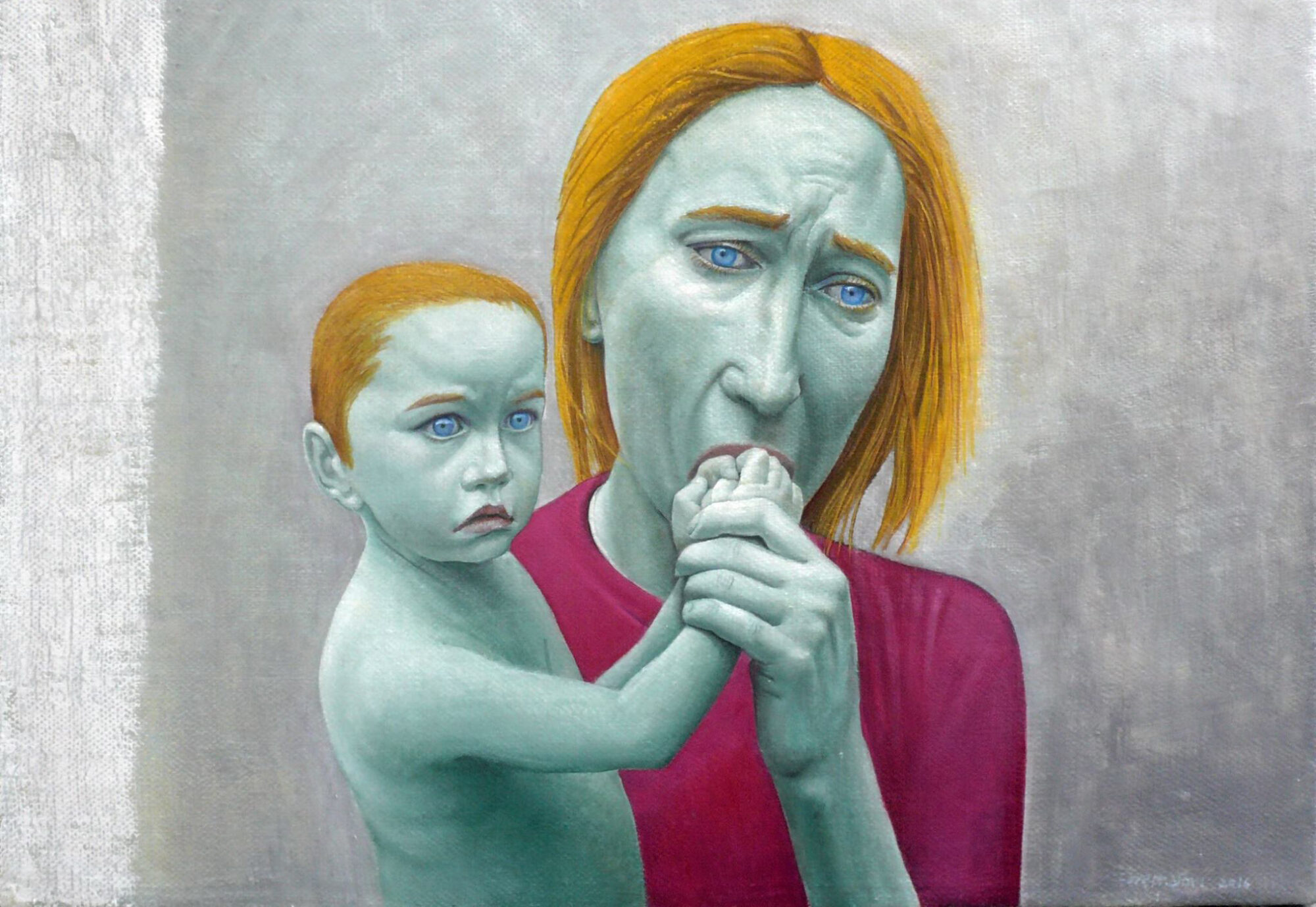Maurizio Governatori was born in 1950 in Fermo (Marche, ITA), is a painter of murals, graphic designer and sculptor with vast experience.
It is not only an Italian artist of original personality, but also one of the greatest exponents in the world of today mural art , of which he has given numerous examples both in his country and in Nicaragua, Mexico, Argentina or the United States.
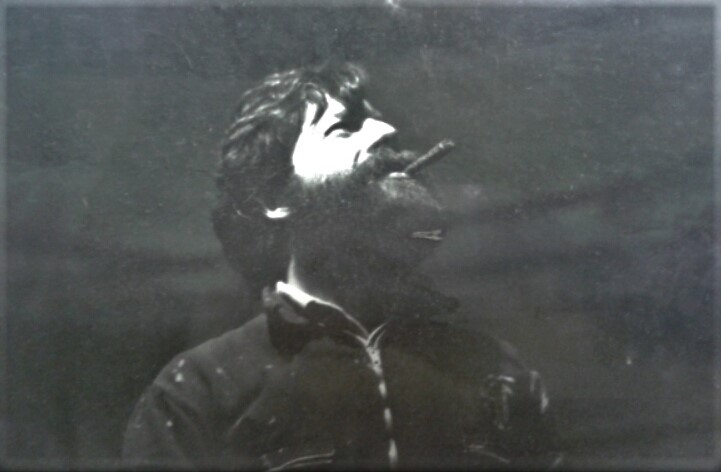
Tied, on the one hand, to the great Italian tradition of twentieth-century figuration, with firm roots in ancient figurative traditions, Governatori has however been able to take into account, on the other, of artistic experiences in the field of abstraction up to the Informal. His painting is nourished by a skilful balance between ancient and modern, between tradition and innovation, between technical precision and visionary tension; and his works stand out for the conception of space, which robust volumes and colors that combined to shape in suggestive rhythms.
The human figures that Governatori builds move between stylization and epic narration, in a desire to restore to sign and painting that “narrative” function that it had, for example, in “classical” artists such as Giotto or Masaccio. Governatori thus aims to look at, to study reality and the human figure in the recovery of that anthropological humanism from which human beings can never withdraw, due to their own biological condition and life in a specific space and time.
From this emerges a centrality of the human being, a “moral” idea of art, which however does not end in indignation: the energetic gesture of Governatori – which stands out for the effectiveness of the synthesis even in the graphic works, in which succeeds to impress a remarkable icastic force – he knows how to reach and maintain a metaphysical tension that moves reality, also offering a rare testimony.
In short, the figural traditions that Governatori pursues show how fertile the figurative tension aimed at a modern expressive story, at a renewed idea of pictorial reality, can still be. And such a figurative courage was needed!
Daniela Marcheschi
Works
